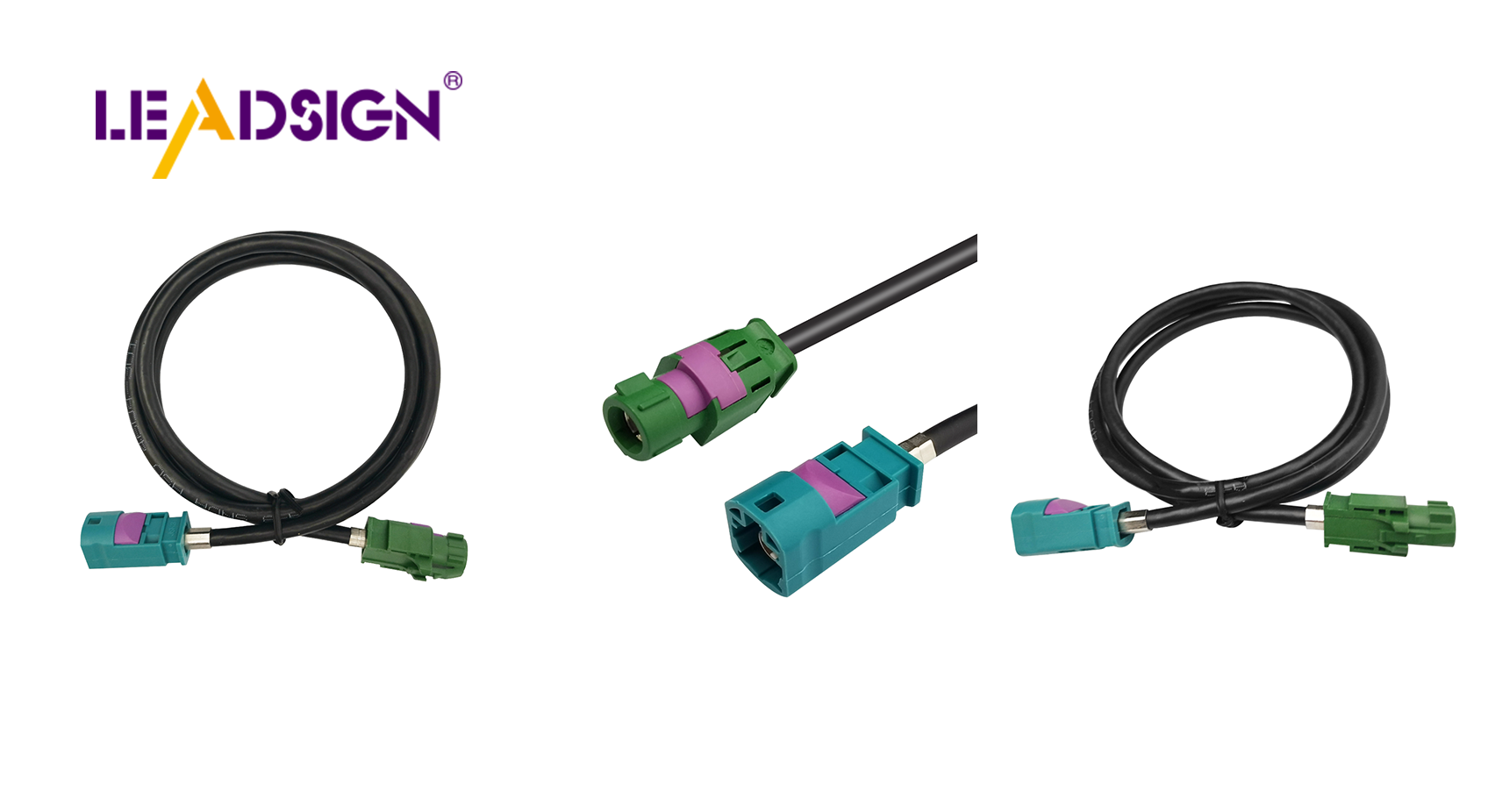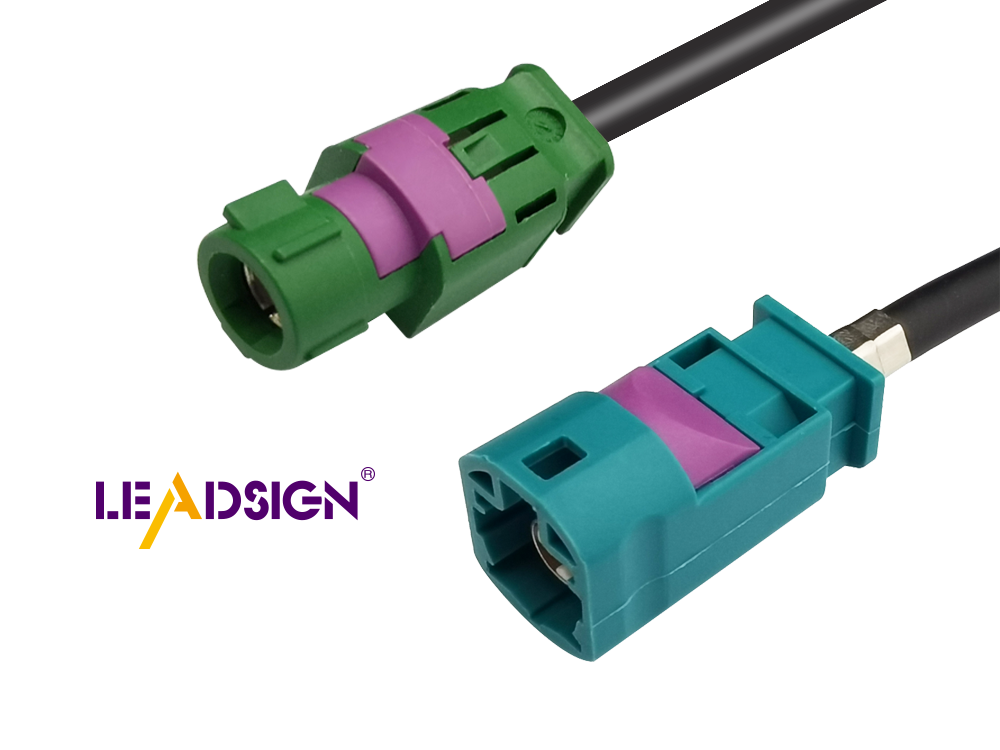How to Easily Identify Types of Wire Connectors Automotive

Wire connectors are crucial components in automotive systems. They play a vital role in ensuring the proper functioning and safety of electrical systems in vehicles. Understanding the various auto wire connector types is essential for avoiding potential issues. Using the correct type of connector is crucial to prevent electrical malfunctions or damage. Familiarizing yourself with the different types of connectors enables you to make informed decisions and maintain the safety of your car's electrical system. This knowledge empowers you to approach auto projects with confidence and precision.
Common Auto Wire Connector Types

Knowing different auto wire connector types is important for car lovers or workers. Let's look at some common ones you might see.
Butt Connectors
Features and Uses
Butt connectors are often used in car wiring. They join two wires end-to-end, great for making wires longer or fixing broken ones. Their tube shape lets wires go in both ends and be crimped tight. This makes a strong link, keeping your car's electrical system safe.
Identification Tips
To find butt connectors, check for their tube shape. They come in colors showing the wire size they fit. Pick one that matches your wire size for a good fit and connection.
Ring Connectors
Features and Uses
Ring connectors are also popular in cars. They have a metal ring that fits over a bolt, making a strong connection. These are used for grounding or connecting to battery ends. Their design keeps connections safe and lasting.
Identification Tips
Finding ring connectors is easy. Look for the round metal ring on one end. The hole size changes, so pick one that fits your bolt size. The insulation color helps show which wire size it fits.
Spade Connectors
Features and Uses
Spade connectors are handy and used often in cars. They have a flat fork shape to slide onto blocks or screws easily. They're perfect when you need to connect and disconnect wires often, loved by DIY fans and pros.
Identification Tips
To see spade connectors, look for their forked shape. They come in sizes; make sure it fits the terminal you use. Insulation color can help pick the right wire size too.
By learning about these common auto wire connector types, you can work on car projects confidently. Whether you're extending wires or setting up new systems, knowing these helps make your job easier and better.
Bullet Connectors
Bullet connectors are often used in cars. They make strong electrical links. These have a male and female part that fit together well. The male piece is round and slides into the female part. This makes a solid connection for car use.
Features and Uses
Bullet connectors last long and are easy to use. They are good for places where wires need to be unplugged often, like lights. They have vinyl covering that keeps them safe from water and other things.
Identification Tips
Finding bullet connectors is simple. Look for their round shape. Make sure the male and female parts match in size for a good fit. Their color shows what wire size they fit with. To use, strip the wire, slide on the connector, and crimp it tight with a tool. Pull on it gently to check if it's secure.
Knowing these tips helps you pick and use bullet connectors easily in car projects. It makes fixing your car's electrical system easier and better.
Special Auto Wire Connector Types
When fixing your car's wires, you might find special connectors. These have cool features for certain jobs. Let's check out two: Heat Shrink Connectors and Quick Disconnects.
Heat Shrink Connectors
Features and Uses
Heat Shrink Connectors keep your wire connections safe. They have a sleeve that shrinks with heat, making it tight. This keeps water and dirt out. Use them where wires need strong protection, like near engines.
Identification Tips
To spot heat shrink connectors, look for the long plastic cover. It shrinks when hot. They come in different colors for wire sizes. Pick one that fits your wire gauge well.
Quick Disconnects
Features and Uses
Quick Disconnects are great when you often join or separate wires. No tools needed! They're perfect for parts needing regular checks, like lights.
Identification Tips
Finding quick disconnects is easy. Look for flat tabs that slide in and out fast. They have male and female parts that fit together well. Colors show what size wire they fit with.
Knowing these special connectors helps you fix cars better and easier. Whether you need extra safety or quick changes, these connectors help a lot.
Things to Think About When Choosing Wire Connectors
When working with car wires, knowing how to pick the right connectors is important. Here's what you should know.
Material and Strength
Why Material Matters
The stuff a connector is made of affects how it works. Pick connectors from good materials so they last in cars. For example, Heat Shrink Connectors are great because they use crimping and heat shrink tubes. This keeps water, dirt, and stress away. They're perfect for tough spots, keeping connections safe and strong.
Thinking About Strength
Strength is also key. You need connectors that handle shaking and temperature changes in cars. Heat Shrink Insulated Quick Disconnects work well here. They keep water out and stop rust, which helps them last longer. The sticky heat shrink adds extra protection, making them good for both boats and cars. Strong connectors make your car's electrical parts last longer.
Size and Fit
Checking Connector Size
Size is important for wire connectors. Measure size right for a good fit. Find connectors that match your wire size. For instance, Quick Disconnect Heat Shrink Terminal Connectors fit different copper wire sizes well. This means you can find the right one easily for a tight fit.
Making Sure It Fits Right
Fit matters for wiring projects to go well. Make sure the connectors fit your car parts right. Look at color codes on connectors; they show what wires they fit with best. This helps avoid mistakes and keeps connections working well. By focusing on fit, you stop problems and keep your car's electric system working fine.
By thinking about these things, you can choose the right auto wire connector types easily. Whether common or special ones, knowing about material, strength, size, and fit helps you pick the best for your car projects.
Knowing wire connectors is key for a good car electrical system. Use the tips here to make strong connections. Think about wire size, material, and weather when picking connectors. Check wires often and prepare them well for best results. Follow these steps to improve your car's wiring, making your projects work well and be fun.
See Also
Exploring HSD Connectors in Automotive Technology
Significance of FAKRA Connectors in Auto Technology
Vital Role of Fakra Connectors in Contemporary Cars

